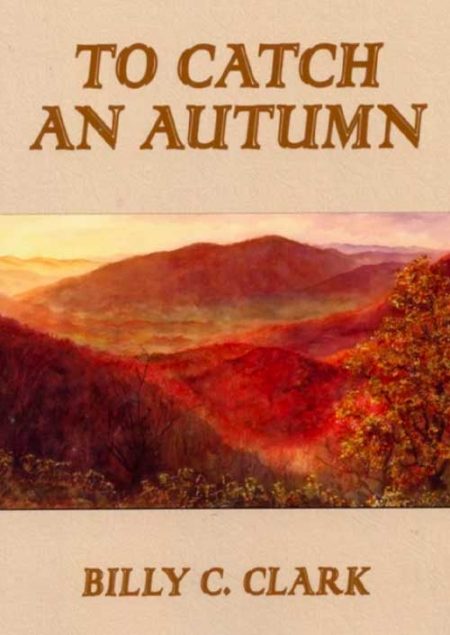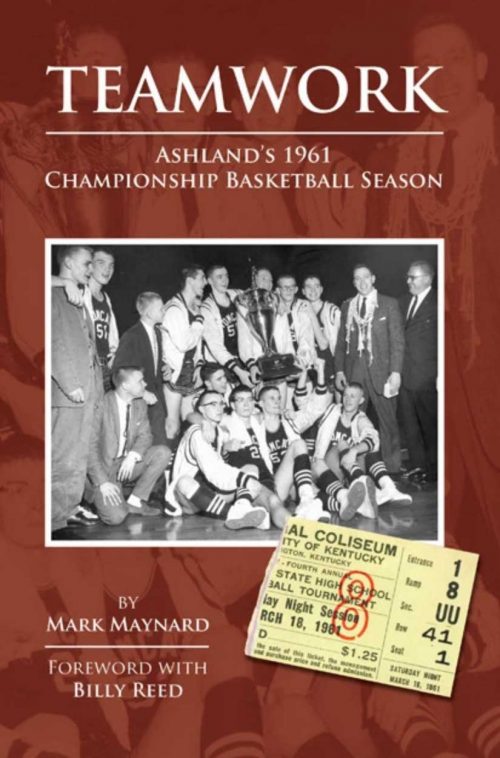-
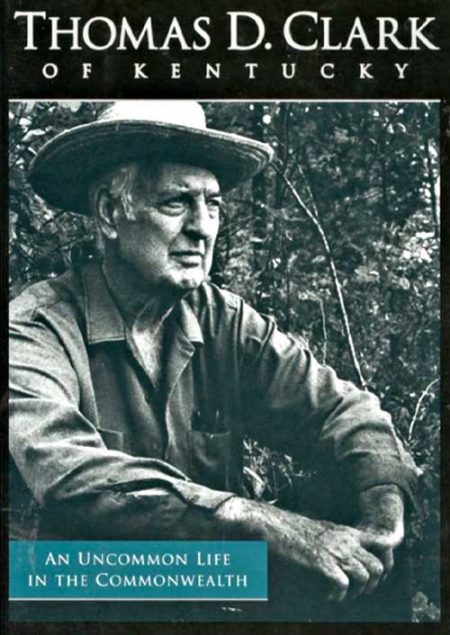 In 1990, the Kentucky General Assembly honored Thomas D. Clark by declaring him Kentucky’s Historian Laureate for life, at which time Governor Brereton Jones described him as “Kentucky’s greatest treasure.” Thomas D. Clark of Kentucky; An Uncommon Life in the Commonwealth is a celebration and exploration of the unparalleled life and career of a man who has both recorded the history and shaped the future of his adopted home state. Born on July 14th 1903, in Louisville, Mississippi, to a cotton farmer and a public school teacher, Clark was the oldest of seven children. Before enrolling in high school at age eighteen, he worked on a farm, in a sawmill, and as a cabin boy and deck hand on a dredge boat. After attending the University of Mississippi and earning graduate degrees at the University of Kentucky and Duke University, Clark joined the faculty of the University of Kentucky in 1931. There he chaired the history department from 1942 until 1965, influencing the lives of thousands of students.
In 1990, the Kentucky General Assembly honored Thomas D. Clark by declaring him Kentucky’s Historian Laureate for life, at which time Governor Brereton Jones described him as “Kentucky’s greatest treasure.” Thomas D. Clark of Kentucky; An Uncommon Life in the Commonwealth is a celebration and exploration of the unparalleled life and career of a man who has both recorded the history and shaped the future of his adopted home state. Born on July 14th 1903, in Louisville, Mississippi, to a cotton farmer and a public school teacher, Clark was the oldest of seven children. Before enrolling in high school at age eighteen, he worked on a farm, in a sawmill, and as a cabin boy and deck hand on a dredge boat. After attending the University of Mississippi and earning graduate degrees at the University of Kentucky and Duke University, Clark joined the faculty of the University of Kentucky in 1931. There he chaired the history department from 1942 until 1965, influencing the lives of thousands of students. -
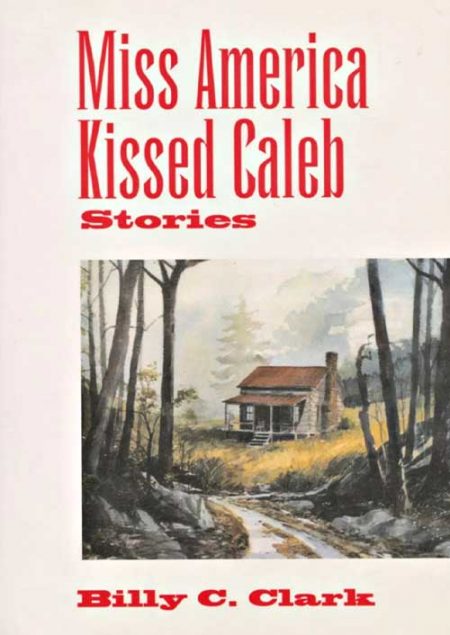 The mountain is a lonely place. Welcome to Sourwood, a small Kentucky town inhabited by men and women unique and yet eerily familiar. Among its joyful and tragic citizens we meet the crafty, spirited Caleb and his curious younger brother; Pearl, a suspected witch, and her sheltered daughter, Thanie; superstitious Eli; and the doomed orphan Girty. In Sourwood, the mountain is both a keeper of secrets and an imposing, isolating presence, shaping the lives of all who live in its shadow. Strong in both the voice and sensibilities of Appalachia, the stories in Miss America Kissed Caleb are at turns heartbreaking and hilarious. In the title story, young Caleb turns over his hard-earned dime to the war effort when he receives a coaxing kiss from Miss America, who sweeps into Sourwood by train, "pretty as a night moth." Caleb and his brother share in the thrills and uncertainties of growing up, making an accidental visit to a brothel in "Fourth of July" and taming a "high society" pooch in "The Jimson Dog." These stories invoke a place and a time that have long passed―a way of living nearly extinct―yet the beauty of the language and the truth revealed in the characters' everyday lives continue to resonate with modern readers. By Billy C. Clark
The mountain is a lonely place. Welcome to Sourwood, a small Kentucky town inhabited by men and women unique and yet eerily familiar. Among its joyful and tragic citizens we meet the crafty, spirited Caleb and his curious younger brother; Pearl, a suspected witch, and her sheltered daughter, Thanie; superstitious Eli; and the doomed orphan Girty. In Sourwood, the mountain is both a keeper of secrets and an imposing, isolating presence, shaping the lives of all who live in its shadow. Strong in both the voice and sensibilities of Appalachia, the stories in Miss America Kissed Caleb are at turns heartbreaking and hilarious. In the title story, young Caleb turns over his hard-earned dime to the war effort when he receives a coaxing kiss from Miss America, who sweeps into Sourwood by train, "pretty as a night moth." Caleb and his brother share in the thrills and uncertainties of growing up, making an accidental visit to a brothel in "Fourth of July" and taming a "high society" pooch in "The Jimson Dog." These stories invoke a place and a time that have long passed―a way of living nearly extinct―yet the beauty of the language and the truth revealed in the characters' everyday lives continue to resonate with modern readers. By Billy C. Clark -
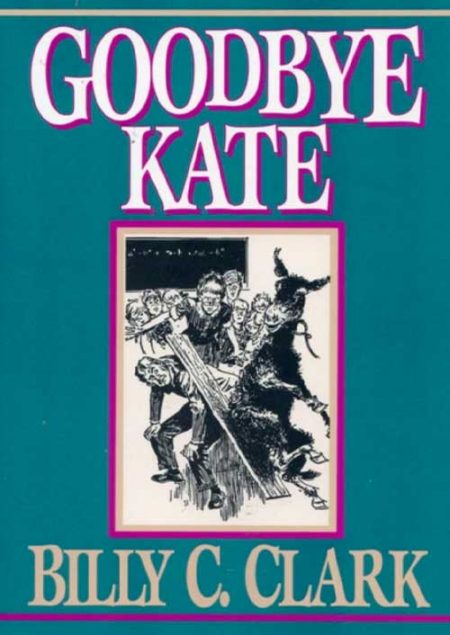 Goodbye Kate, Billy C. Clark’s sixth novel, is based in part on a mule he once owned. In the novel, Kate is found far back in the hills by a lonely country boy named Isaac Warfield. He lives close enough to Tatesburg, the nearest town, to walk to school there, but it’s a small town, and his home is isolated. Isaac has graduated from the little country school he has attended and the other members of his class will be moving on to another school, or to no school at all. He won’t have much contact with his friends anymore, and the nearest neighbor, a money-hungry man named Simm Johns, has no children and is “mean as a striped snake.” Isaac finds Kate when he goes back into the hills to pick some blackberries for his mother. The little mule is apparently as lonely as Isaac is, and she adopts him and follows him home – as far as the pine grove above the house, that is. By Billy C. Clark
Goodbye Kate, Billy C. Clark’s sixth novel, is based in part on a mule he once owned. In the novel, Kate is found far back in the hills by a lonely country boy named Isaac Warfield. He lives close enough to Tatesburg, the nearest town, to walk to school there, but it’s a small town, and his home is isolated. Isaac has graduated from the little country school he has attended and the other members of his class will be moving on to another school, or to no school at all. He won’t have much contact with his friends anymore, and the nearest neighbor, a money-hungry man named Simm Johns, has no children and is “mean as a striped snake.” Isaac finds Kate when he goes back into the hills to pick some blackberries for his mother. The little mule is apparently as lonely as Isaac is, and she adopts him and follows him home – as far as the pine grove above the house, that is. By Billy C. Clark -
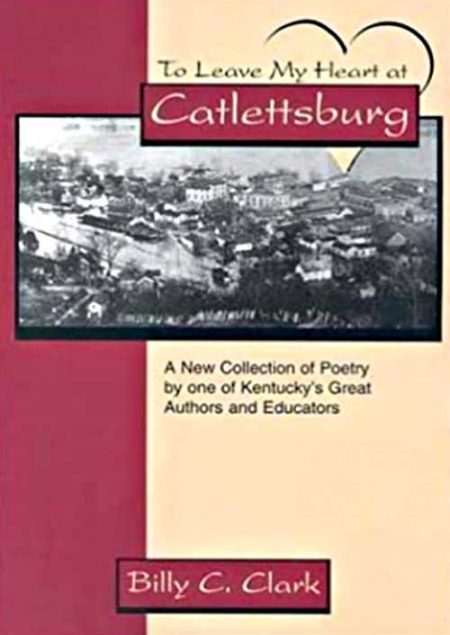 This sense of appreciation for earth and its creatures runs through all of the poems in To Leave My Heart at Catlettsburg and results in a poignant literacy tribute, a gift to a town and its people. Beyond that, this book reminds all readers to observe the world more carefully and to listen more sensitively, to be more alive to the beauty and sturggles around us, to be more grateful for passing through. By Billy C. Clark
This sense of appreciation for earth and its creatures runs through all of the poems in To Leave My Heart at Catlettsburg and results in a poignant literacy tribute, a gift to a town and its people. Beyond that, this book reminds all readers to observe the world more carefully and to listen more sensitively, to be more alive to the beauty and sturggles around us, to be more grateful for passing through. By Billy C. Clark -
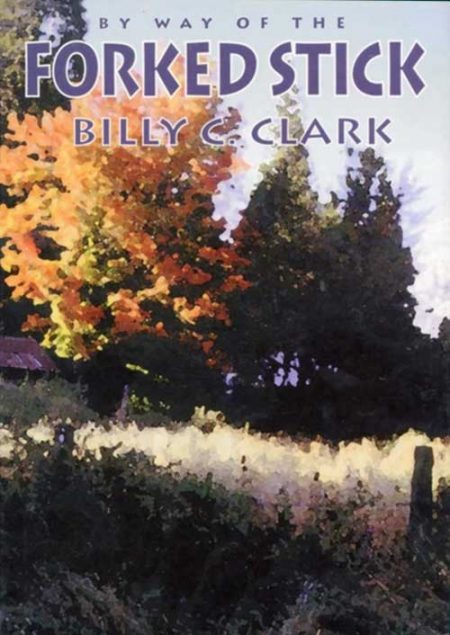 In the little Appalachian town of Sourwood, life at the end of the Great Depression may have been tough, but it was rich beyond compare. Building on a distinguished body of work celebrating and preserving mountain culture, renowned writer Billy C. Clark once again revisits his boyhood during a bygone era. By Way of the Forked Stick offers four fictional stories drawn from the author's childhood experiences of the 1930s—tales that vividly convey the down-home spirit of a lost way of life. By Billy C. Clark
In the little Appalachian town of Sourwood, life at the end of the Great Depression may have been tough, but it was rich beyond compare. Building on a distinguished body of work celebrating and preserving mountain culture, renowned writer Billy C. Clark once again revisits his boyhood during a bygone era. By Way of the Forked Stick offers four fictional stories drawn from the author's childhood experiences of the 1930s—tales that vividly convey the down-home spirit of a lost way of life. By Billy C. Clark -
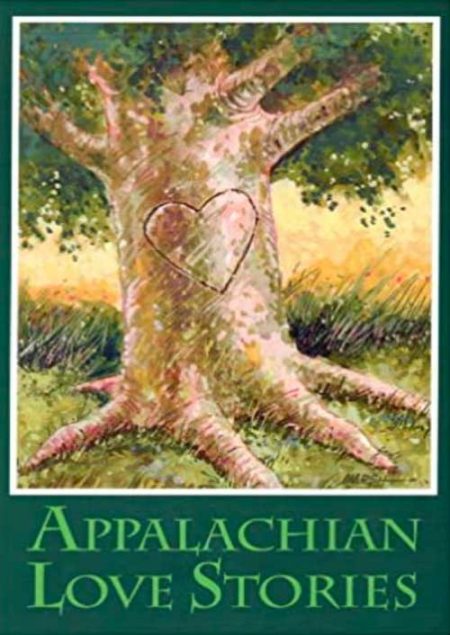 Authors represented in Appalachian Love Stories include:
Authors represented in Appalachian Love Stories include:- Jesse Stuart
- Ancella R. Bickley
- James M. Gifford
- Jimmy Lowe
- James B. Goode
- Edwina Pendarvis
- Laura Treacy Bentley
- Bruce Radford Richey
- Ina Everman
- Danny Fulks
- Loyal Jones
- Billy C. Clark
- Linda Scott DeRosier
- Christina St. Clair
- Alexandra Combs Hudson
- Kate Larken
- Barbara Smith
- Carol Van Meter
-
 Jesse Stuart was a paradox. For a period of his life, Jesse slept with a loaded gun under his pillow, yet he also carried a typewriter with him wherever he went. He courted woman with mud on his boots and pistols on his hips, but he had wildflowers in his hands and envelops completely covered with chicken-scratched poems in his pockets. He was petty yet often kind, mean-spirited but truly helpful to beginning writers, clannish yet hospitable to visitors HARDBACK By James M. Gifford
Jesse Stuart was a paradox. For a period of his life, Jesse slept with a loaded gun under his pillow, yet he also carried a typewriter with him wherever he went. He courted woman with mud on his boots and pistols on his hips, but he had wildflowers in his hands and envelops completely covered with chicken-scratched poems in his pockets. He was petty yet often kind, mean-spirited but truly helpful to beginning writers, clannish yet hospitable to visitors HARDBACK By James M. Gifford -
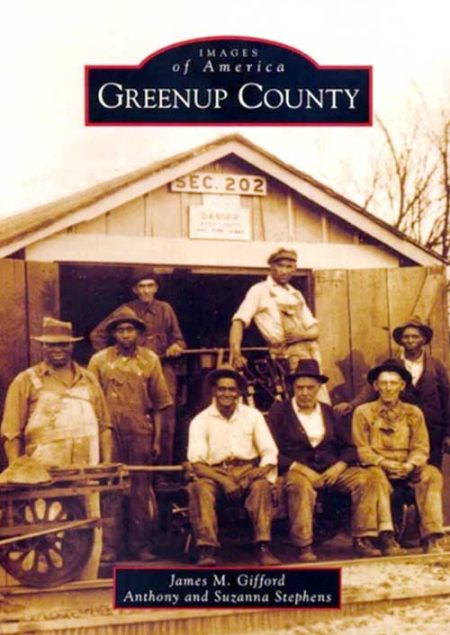 Greenup County, bordering the Ohio River in northeastern Kentucky, is rich in history and culture. Settlers first arrived in the mid-1700s and carved farms from hardwood forests. Lucy Virgin Downs, the first white child born west of the Alleghenies, lived in Greenup County, as did Jesse Boone, brother of Kentucky icon Daniel Boone. The 20th century brought industrialization and economic diversification to the historically agricultural area. Ashland Oil, a Fortune 500 company, maintained corporate headquarters in Greenup County. Two steel mills, a large rail yard, an excellent hospital, and a number of surface mines also provided employment to many people who continued to work their family farms, too. This economic progress was mirrored in every aspect of country life as education, health care, and recreation all improved dramatically. Today Greenup County’s history is appreciated by both longtime residence and cultural tourists. James M. Gifford serves as chief executive and senior editor of the Jesse Stuart Foundation, a regional publishing house. Dr. Gifford’s coauthors, Anthony and Suzanna Stephens, are eastern Kentuckians. The authors gathered photographs from dozens of personal and library collections.SOFTBACK By James M. Gifford, Anthony and Suzanna Stephens
Greenup County, bordering the Ohio River in northeastern Kentucky, is rich in history and culture. Settlers first arrived in the mid-1700s and carved farms from hardwood forests. Lucy Virgin Downs, the first white child born west of the Alleghenies, lived in Greenup County, as did Jesse Boone, brother of Kentucky icon Daniel Boone. The 20th century brought industrialization and economic diversification to the historically agricultural area. Ashland Oil, a Fortune 500 company, maintained corporate headquarters in Greenup County. Two steel mills, a large rail yard, an excellent hospital, and a number of surface mines also provided employment to many people who continued to work their family farms, too. This economic progress was mirrored in every aspect of country life as education, health care, and recreation all improved dramatically. Today Greenup County’s history is appreciated by both longtime residence and cultural tourists. James M. Gifford serves as chief executive and senior editor of the Jesse Stuart Foundation, a regional publishing house. Dr. Gifford’s coauthors, Anthony and Suzanna Stephens, are eastern Kentuckians. The authors gathered photographs from dozens of personal and library collections.SOFTBACK By James M. Gifford, Anthony and Suzanna Stephens -
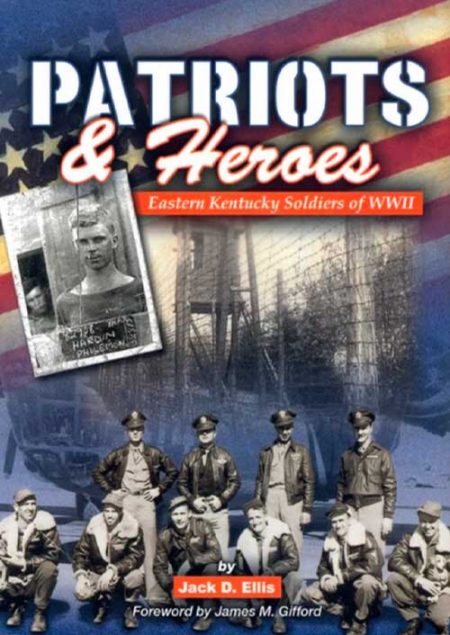 Patriots & Heroes: Eastern Kentucky Soldiers of WW II profiles the physical pain, and also the psychological and emotional stress suffered by a dozen of America's Citizen Soldiers in WW II. Their stories are representative of the courage, suffering, sacrifice and separation faced by the American GIs of that war. Included among these twelve are stories of POWs, KIAs, MIAs and many that returned home safely to become valuable, productive members of their community. The author uses interviews, letters, documents, and personal experiences to poignantly present their stories. HARDBACK By Jack D. Ellis
Patriots & Heroes: Eastern Kentucky Soldiers of WW II profiles the physical pain, and also the psychological and emotional stress suffered by a dozen of America's Citizen Soldiers in WW II. Their stories are representative of the courage, suffering, sacrifice and separation faced by the American GIs of that war. Included among these twelve are stories of POWs, KIAs, MIAs and many that returned home safely to become valuable, productive members of their community. The author uses interviews, letters, documents, and personal experiences to poignantly present their stories. HARDBACK By Jack D. Ellis -
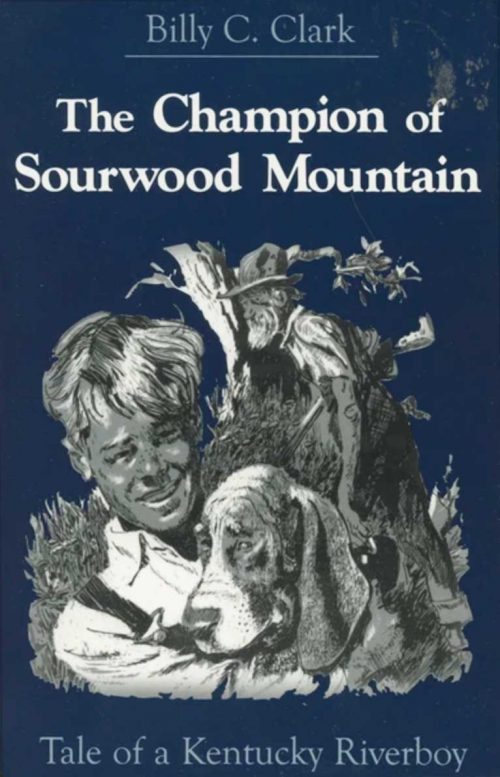 The people, the lore, even the sounds of eastern Kentucky come vividly to life in this affectionate story of a boy and his search dog. In the shadow of Sourwood Mountain, fourteen-year-old Aram Tate is absorbed in the sometimes painful process of growing up. His all-consuming passion is to own a hound dog of his very own, and his efforts to achieve this dream involve him in a series of amusing adventures which broaden his boy's-eye view of the world. Through his friendship with ne'er-do-well Eb ringtom, Aram Learns the ways of men as they never were described in books. Among the other colorful characters who contribute to the boy's education are Lighting and Napoleon, two imcomparably wily gamecocks; Thusla, Eb's great hound whose exploits can only be described as apocryphal; and Rile Feder and his dog, the bluetick Tweedle, who fears neither coon nor fox. SOFTBACK By Billy C. Clark
The people, the lore, even the sounds of eastern Kentucky come vividly to life in this affectionate story of a boy and his search dog. In the shadow of Sourwood Mountain, fourteen-year-old Aram Tate is absorbed in the sometimes painful process of growing up. His all-consuming passion is to own a hound dog of his very own, and his efforts to achieve this dream involve him in a series of amusing adventures which broaden his boy's-eye view of the world. Through his friendship with ne'er-do-well Eb ringtom, Aram Learns the ways of men as they never were described in books. Among the other colorful characters who contribute to the boy's education are Lighting and Napoleon, two imcomparably wily gamecocks; Thusla, Eb's great hound whose exploits can only be described as apocryphal; and Rile Feder and his dog, the bluetick Tweedle, who fears neither coon nor fox. SOFTBACK By Billy C. Clark


